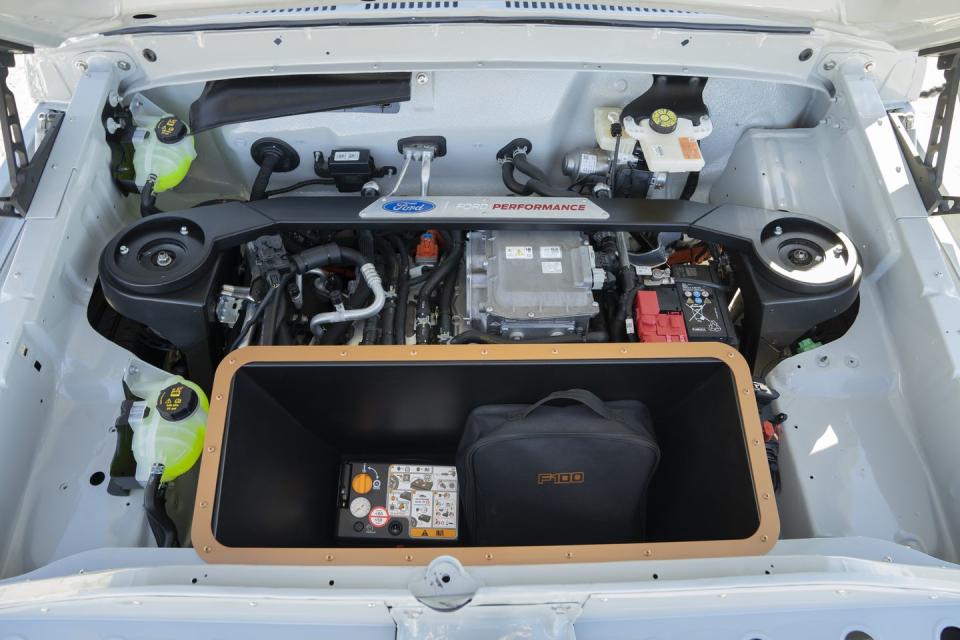California Bill Proposes Cash for EV Conversions

California senator Anthony Portantino has introduced legislation that would grant Californians up to $2000 toward re-fitting their gasoline or diesel-fueled vehicles with battery-electric drivetrains.
Above: The Ford Eluminator, a 1978 F-100 converted to all-electric operation, unveiled at the 2021 SEMA convention.
Senate Bill 301, co-sponsored by SEMA, seeks to add a Zero-Emission Aftermarket Conversion Project (ZACP) incentive to further bolster California’s existing array of electric vehicle rebates. Currently, none of the state’s programs apply to anything other than the purchase or lease of a brand-new EV. While those programs help speed EV adoption, the cost of new electric vehicles keeps them out of reach for many. Portantino and SEMA want to $2 million in annual funding to be allocated for EV conversions of existing cars and trucks, which they hope will expand access to zero-emission (at the tailpipe at least) machines.
“It is essential that we continue to look for new methods and ideas to meet our strong climate goals,” Portantino said in a release. “SB 301 will make it much easier for many Californians who have the desire to go green but lack the financial capacity to do so. It will aid conversion by providing a financial rebate for Californians who choose to convert their gas-powered car into an electric vehicle but can’t afford to do so. Cutting-edge energy efficiency should not be reserved only for those wealthy enough to afford it.”

It is worth noting that professional EV conversions are not exactly a low-budget option now. These builds often cost tens of thousands of dollars, with few being straightforward drop-in packages. Furthermore, SB 301 states that a converted vehicle must have a range of at least 100 miles to qualify for the rebate. That’s not a huge figure by OEM standards, but it would restrict what types of batteries builders can source -- from either salvaged EVs or new sources.
Regardless of the hurdles, SEMA sees EV conversions as an important part of the automotive aftermarket’s future, and as a way to preserve car culture in an emission-free future. That’s important in California, which intends to ban the sale of new internal combustion cars in 2035. Also, the state has tons of race shops and tuners who could handle such electric swaps should SB 301 be enacted. Whether or not they choose to build EVs is another question.
California residents can show their support for (or opposition to) SB 301 at this link.

You Might Also Like


